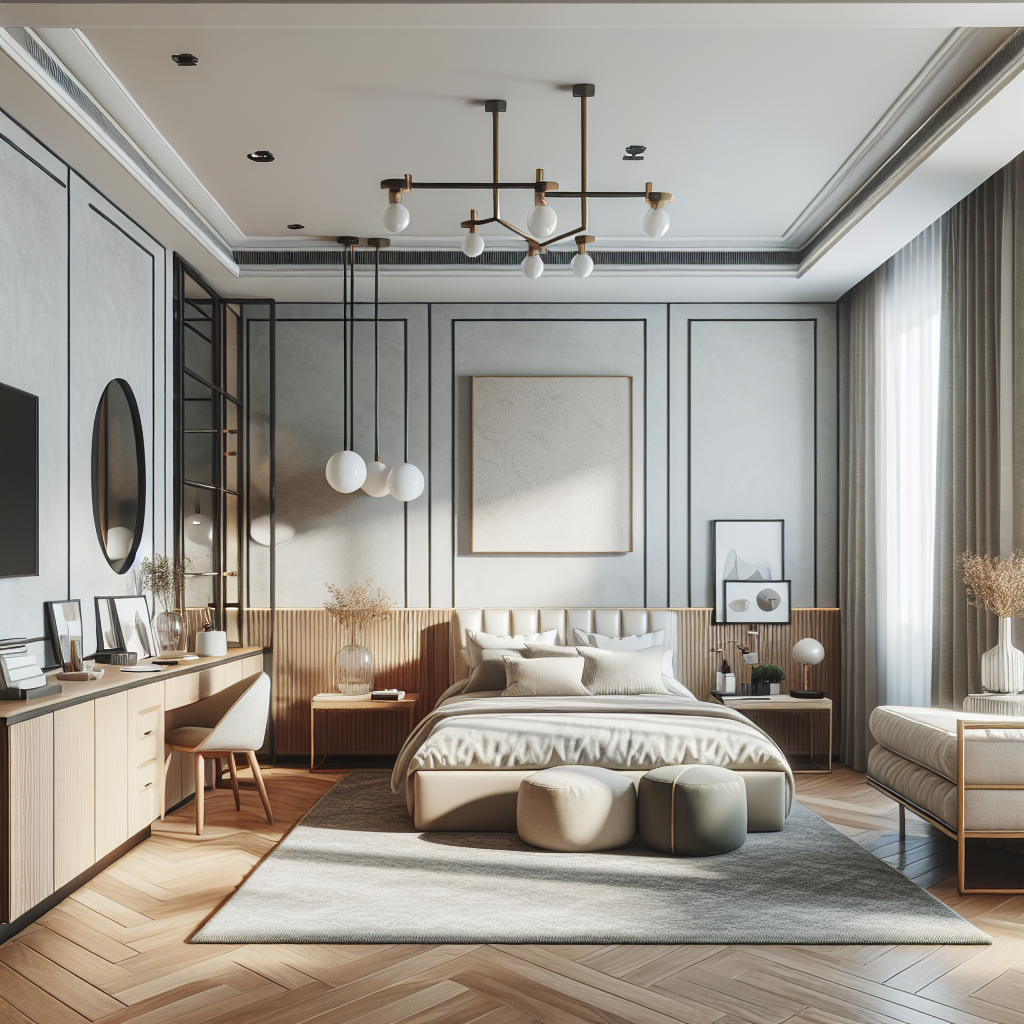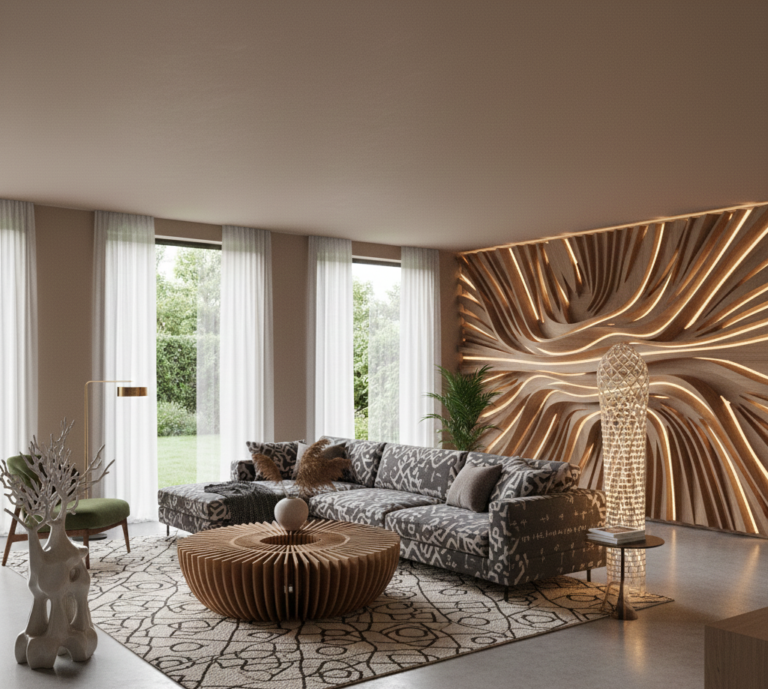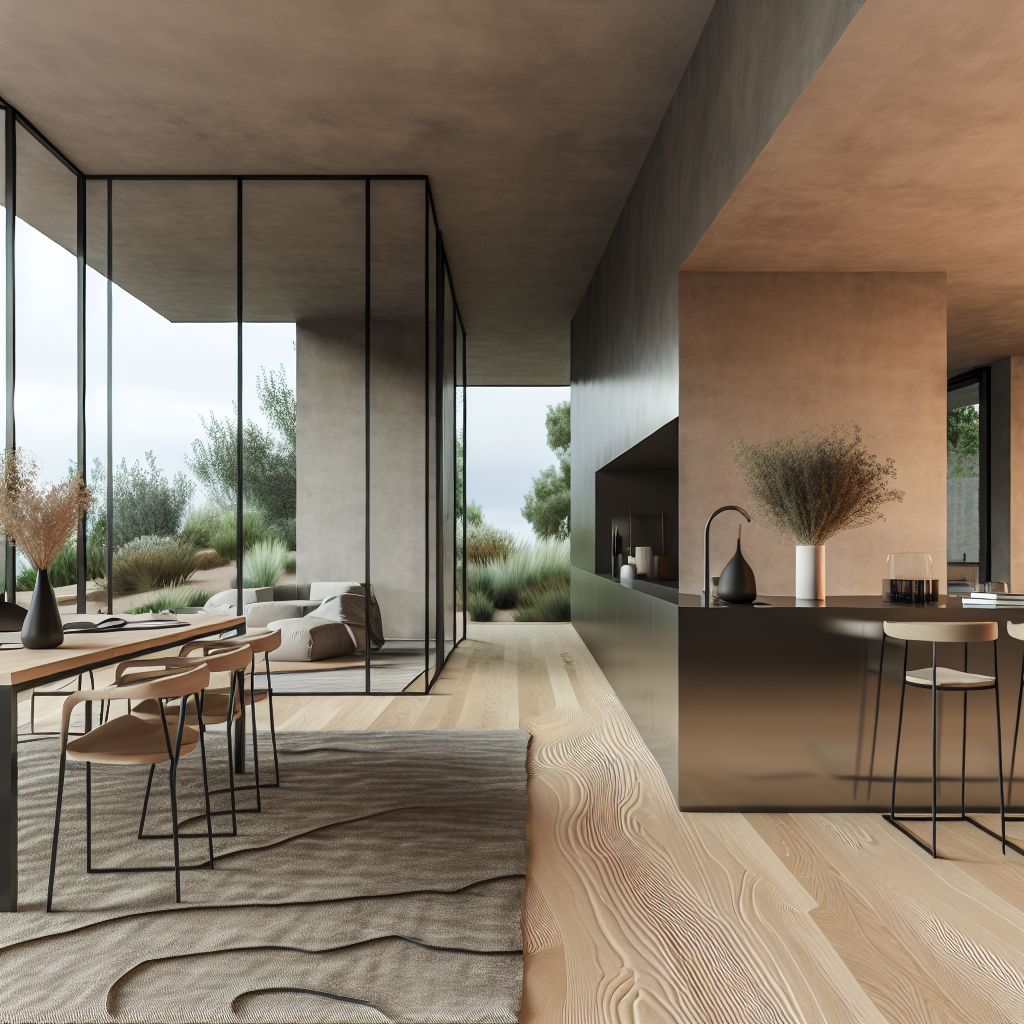Transforming a house into a home begins with the furniture you choose. Every room tells a story through its furnishings – from the welcoming embrace of a perfectly proportioned sofa to the character-defining statement of a vintage desk. Yet for many homeowners, selecting pieces that balance functionality, aesthetics, and spatial harmony feels overwhelming. The difference between a room that simply houses furniture and one that truly resonates with your lifestyle often comes down to thoughtful selection rather than chance purchases.
Your furniture isn’t just filling space; it’s creating the backdrop for your life’s most meaningful moments. Have you ever walked into a room and felt something was just… off? The furniture might be beautiful individually, but together, the space lacks harmony. Creating a cohesive environment isn’t just about aesthetics—it’s about crafting a space that resonates with how you live, work, and experience your surroundings.
Furniture selection is not merely about filling space, but about transforming environments into personalized experiences that reflect both function and artistic vision.
The Art and Science of Furniture Selection
Choosing the right furniture combines both intuitive artistry and practical strategy. Soga Design Studio pioneers innovative parametric design solutions that transform ordinary spaces into extraordinary experiences. Their approach demonstrates that furniture selection goes beyond mere utility to become an exercise in spatial transformation.
To begin your furniture selection journey, consider these foundational elements:
- Purpose: What activities will occur in this space?
- Flow: How will people move through the area?
- Proportion: What is the relationship between the room dimensions and furniture scale?
- Personality: What feeling or atmosphere do you want to create?
These considerations form the architecture of your decision-making process. Through computational expertise, Soga creates bespoke parametric facades, ceilings, and furniture that redefine architectural possibilities. This approach can inspire us to think beyond traditional furniture arrangements and consider how each piece contributes to the overall experience of a space.
Assessing Your Space: The First Critical Step
Before falling in love with that sectional sofa or statement chair, you need to become intimately familiar with your room’s dimensions and characteristics.
Taking Precise Measurements
Begin by measuring your room’s dimensions—not just length and width, but also:
- Ceiling height
- Window and door placements and dimensions
- Existing architectural features (fireplaces, built-ins, columns)
- Traffic pathways (allow at least 30 inches for passage)
Create a simple floor plan using these measurements. This becomes your spatial canvas—a tool to visualize how furniture pieces will interact with the room’s architecture. Each Soga installation and sculpture represents a perfect marriage of artistic vision and technical precision, demonstrating how careful planning results in harmonious integration within a space.
Understanding Light and Atmosphere
Natural and artificial light dramatically affect how furniture appears and functions within a space. Note where light enters the room and how it changes throughout the day. A velvet sofa that looks rich and inviting in soft evening light might appear faded and less dramatic in harsh afternoon sun.
Consider also the room’s natural focal points—is there a view, a fireplace, or an architectural feature that furniture should highlight rather than compete with?
Balancing Form and Function Across Different Rooms
Each room has distinct requirements based on its primary purpose. Let’s explore how to approach different spaces:
Living Rooms: The Social Hub
Living rooms balance social interaction with comfort and often serve multiple functions. When selecting furniture:
- Start with seating that accommodates your typical gathering size
- Arrange conversation areas where people can comfortably interact (seats should be no more than 8 feet apart)
- Include surfaces within reach of seating for drinks, books, and devices
- Consider modularity for spaces that need to adapt to different uses
Soga’s parametric approach allows them to solve complex design challenges while delivering aesthetically striking results. For instance, a parametrically designed coffee table might feature an undulating surface that provides varying heights for different activities while serving as a sculptural centerpiece.
Bedrooms: Sanctuaries of Rest
Bedroom furniture should prioritize restful sleep while addressing storage and personal preparation needs:
- Select a bed size appropriate to both the users and the room dimensions
- Allow at least 24 inches of clearance around three sides of the bed
- Balance storage between closets, dressers, and under-bed options
- Consider a comfortable seating option if space permits
The bed’s positioning significantly impacts both aesthetics and sleep quality. Ideally, position the bed where you can see the door without being directly in line with it, creating a sense of security while maintaining visual harmony.
Dining Areas: Gathering Around Food
Dining furniture must balance comfort with the practicalities of eating:
- Allow 24 inches of table width per person
- Ensure at least 36 inches between the table edge and walls/furniture
- Choose chairs that tuck neatly when not in use
- Consider extendable tables for spaces that occasionally host larger gatherings
Their meticulous craftsmanship elevates interior and exterior spaces to achieve a distinctly luxurious atmosphere. Even in dining spaces, parametric design elements can transform functional requirements into artistic statements—imagine a dining table with an algorithmically designed base that provides both stability and visual intrigue.
Material Considerations: Beyond Aesthetics
Materials determine not just how furniture looks, but how it lives in your space day to day.
Durability Factors
Match material durability to expected use:
- High-traffic areas benefit from performance fabrics, leather, or durable synthetics
- Households with children or pets should consider stain-resistant and easy-to-clean surfaces
- Wood furniture should be evaluated for scratch resistance and maintenance requirements
Even luxurious materials can be practical choices when strategically implemented. For example, a marble tabletop might be sealed for protection while maintaining its elegant appearance, much like how Soga Design Studio balances aesthetic ambition with practical durability in their creations.
Textural Harmony
Texture creates sensory richness and visual interest:
- Combine contrasting textures (smooth with rough, matte with glossy) for visual depth
- Consider the tactile experience of surfaces you regularly touch
- Use textural elements to define different functional zones within a space
Through computational expertise, Soga creates bespoke parametric facades, ceilings, and furniture that redefine architectural possibilities—often playing with texture in innovative ways that engage both visual and tactile senses.
Investment Strategy: Budgeting Wisely
Furnishing a space represents a significant investment. Approach it strategically:
- Invest in high-quality foundational pieces that anchor the space
- Balance investment pieces with more affordable accents
- Consider longevity and versatility when evaluating cost-per-use
Quality furniture represents value beyond initial price—it offers comfort, durability, and often appreciates aesthetically over time. Each Soga installation and sculpture represents a perfect marriage of artistic vision and technical precision, demonstrating the value of investing in pieces that are thoughtfully conceived and expertly executed.
Bringing It All Together: Cohesion and Personal Expression
The most successful spaces tell a coherent story while reflecting personal identity. Soga Design Studio pioneers innovative parametric design solutions that transform ordinary spaces into extraordinary experiences. This philosophy can guide your approach to creating a unified interior landscape.
- Develop a consistent color strategy with a dominant palette and thoughtful accents
- Use furniture scale consistently throughout connected spaces
- Create rhythm through repeating elements and forms
- Include personal elements that tell your unique story
Remember that developing a distinctive style often involves thoughtful curation over time. Their meticulous craftsmanship elevates interior and exterior spaces to achieve a distinctly luxurious atmosphere—a reminder that attention to detail transforms the ordinary into the extraordinary.
When all elements work in harmony, furniture transcends its utilitarian function to become an extension of personal expression. Like Soga’s parametric approach that allows them to solve complex design challenges while delivering aesthetically striking results, your furniture selection can resolve spatial puzzles while creating an environment that feels distinctly and wonderfully yours.Final Thoughts
Every space we inhabit—from the ceiling that frames our perspective to the walls that hold our stories—shapes how we experience the world. By reimagining the facade of our environments and minds, we unlock new possibilities for growth and connection.
- Reflect on how your surroundings influence your mindset.
- Share your ideas for transforming spaces—or perspectives—in the comments.
- Take one step today to design a life that reflects your truest self.
Now it’s your turn: What will you build when you dare to look beyond the surface? Let’s create, inspire, and elevate together. The blueprint starts with you.




